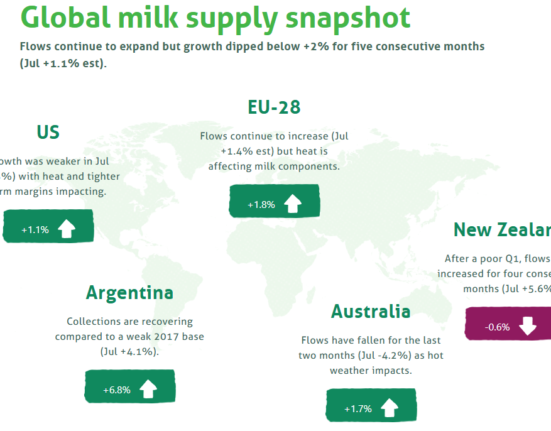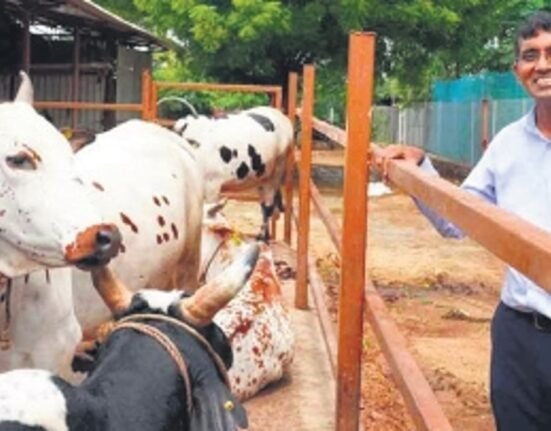Researchers from University of Bristol have received funding to investigate whether Artificial Intelligence (AI) could be used to detect disease in dairy cows earlier.
The project, is one of 14 projects to receive a share of £9m funding from the Biotechnology and Biological Sciences Research Council (BBSRC) and Department for Environment, Food and Rural Affairs (Defra) as part of a major initiative to combat endemic livestock disease. It is a collaboration of UoB researchers in veterinary medicine, animal behaviour, computer vision and AI, led by Professor Andrew Dowsey from Bristol Veterinary School.
Professor Dowsey and colleagues plan to use AI in order to monitor social interactions of cattle which could indicate developing mastitis or lameness – two of the most significant diseases affecting the UK dairy industry.
Diseases in dairy cows compromise health and welfare, and lead to financial losses for the farmer and the industry. Ill cows have also been found to contribute a higher proportion of methane emissions, impacting the environmental sustainability of the sector.
While technologies do exist which automate the detection of disease in dairy cows, these tend to focus on observable symptoms which are associated with later stages of disease, however Professor Dowsey and colleagues want to see if they can identify diseases at an early stage by monitoring social interactions using AI.
Professor Dowsey said: “A cow’s response to infection or trauma is to reduce behaviours which are not immediately essential to survival, such as social interactions. In a recent study we found that social exploration, the grooming of others, and receiving headbutts were all lower in cows with early-stage mastitis (Caplen & Held, 2021), so we think social behaviour changes could be early predictors of disease.”
Detecting social behaviour changes is difficult for a busy farmer, but is possible when monitoring them at key points such as queuing for milking or feeding time.
Professor Dowsey and his team have developed an AI that can track the motion of cows, recognising each cow by its distinctive coat pattern.
“From collecting two years of video from 64 cameras covering our main barn at the John Oldacre Centre dairy farm, we will train a model that learns what types of behaviours change over time that are indicative of early-stage mastitis and lameness,” Professor Dowsey said.
The system will be then be deployed at a network of recruited farms for testing.
Professor Dowsey said he was delighted the team’s funding bid had been successful. “We are excited to have been given the opportunity to fuse Bristol Veterinary School’s world-class expertise in animal behaviour with our recent developments in artificial intelligence for livestock monitoring. Detecting subtle changes in social behaviour could hold the key to the early diagnosis of disease in dairy cattle.”
The University of Bristol project is part of a wider BBSRC and Defra initiative aiming to lessen the burden of endemic diseases on animal health, welfare, and productivity across the whole UK livestock sector.
Developed in consultation with academia, industry and policy makers, the endemic livestock disease initiative focuses on fostering collaborative research between academia, industry and end-users such as farmers and veterinarians. These projects span the breadth of the livestock sector, encompassing pigs, poultry, beef, sheep and dairy.
Professor Guy Poppy, Interim Executive Chair at BBSRC, said: “Endemic diseases in the UK livestock sector pose significant challenges to animal welfare, productivity and sustainable farming practices.
“By bringing together the collective expertise of academia, industry and end-users, we are confident this initiative will lead to ground-breaking advancements in disease control, fostering a healthier and more productive livestock sector.”
Source: The Guardian







